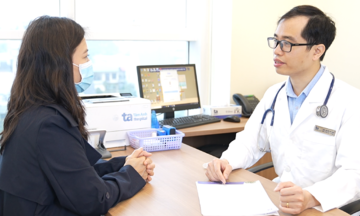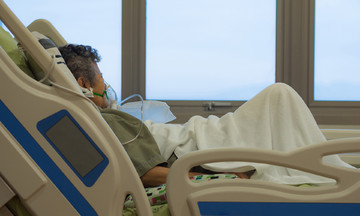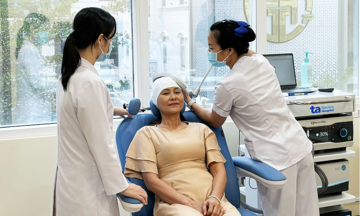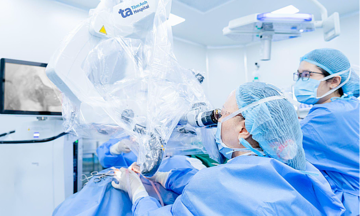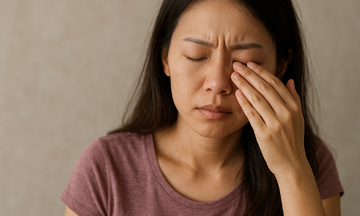A stroke is a dangerous medical event, commonly known for its severe physical sequelae such as hemiplegia, speech difficulties, or loss of balance. However, according to Doctor Vu Thy Cam from the Institute of Mental Health at Bach Mai Hospital, many patients, after surviving the critical phase, face another silent enemy: adjustment disorder. This condition occurs when a person exhibits excessive emotional or behavioral reactions to a stressful event, in this case, a stroke.
"This disorder typically manifests as anxiety, sadness, and a lack of motivation, factors that can reduce adherence to rehabilitation programs", Doctor Cam explained. She noted that these symptoms are often overlooked but can impair personal function and pose a significant barrier to recovery.
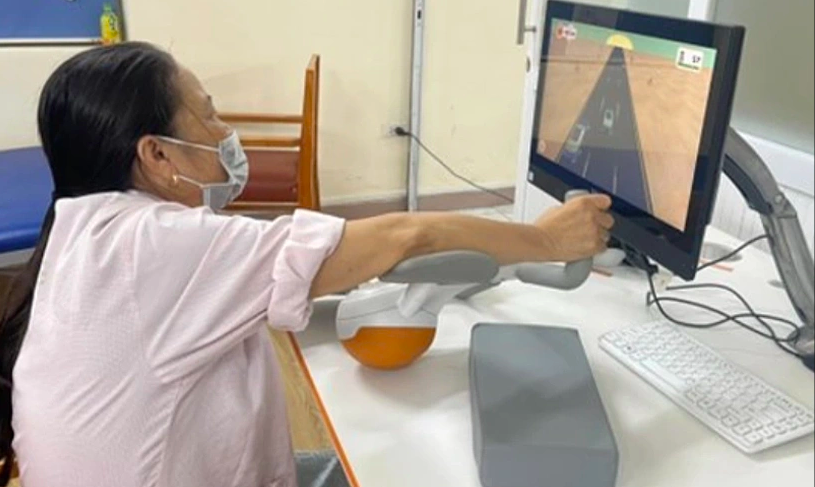 |
Patients with stroke perform virtual reality-simulated exercises at Bach Mai Hospital. Photo: Hospital provided
The underlying cause of this condition stems from a complex interaction between brain damage and psychological shock. A stroke can damage brain regions that regulate emotions, such as the prefrontal cortex, basal ganglia, and thalamus, while also causing an imbalance of crucial neurotransmitters like serotonin, norepinephrine, and dopamine. Concurrently, patients must cope with a life-threatening event and its sequelae, leading to acute or prolonged psychological stress. Feelings of helplessness and diminished self-esteem intensify as they lose motor functions and their social and professional roles, particularly when family support is lacking.
Evidence indicates that patients exhibiting persistent symptoms of depression and anxiety often experience poorer recovery outcomes, longer hospital stays, and a lower quality of life. Psychological factors, therefore, play a crucial prognostic role in post-stroke recovery.
Doctor Cam emphasized that despite being a natural reaction, adjustment disorder requires early diagnosis and intervention. Regular screening and the implementation of mental health interventions, such as: medication, cognitive behavioral therapy, and social support, can help patients adhere better to treatment, thereby improving recovery outcomes.
"Support from family and the community, combined with timely medical and psychological interventions, is key for patients to overcome this mental barrier and achieve the best possible recovery", Doctor Cam concluded.
Le Nga




